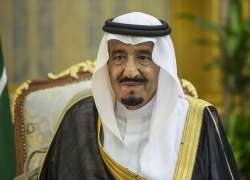End of tax-free living in Saudi Arabia as Cabinet approves VAT after oil slump
The Saudi Arabian government has approved an International Monetary Fund-backed Value Added Tax (VAT), to be imposed across the Gulf nations.

The Saudi Arabian government has approved an International Monetary Fund-backed Value Added Tax (VAT), to be imposed across the Gulf nations.
The decision, taken following an oil slump which has hit the revenue in Gulf states, will end the tax-free living that regional residents have enjoyed for a very long time.
The Saudi Council of Ministers approved the unified agreement on VAT and selective taxes in the Gulf Cooperation Council (GCC) states.
Besides Saudi Arabia, Bahrain, Kuwait, Oman, Qatar and the United Arab Emirates (UAE) are other members of the GCC. Other Gulf countries are also expected to implement taxation by the beginning of the next year.
The 2017 state budget of Saudi Arabia has recommended a 5 per cent VAT from 2018 which will apply to certain goods. The GCC agreed to implement the tax last June.
The countries have already introduced taxes on tobacco, soft and energy drinks this year. The tax on tobacco, currently at 50 percent, will be increased to 100 percent, at the same level as those for energy drinks and sodas.
In a session chaired by King Salman, the Cabinet gave its nod to the measure after deeming that the Kingdom is ready to implement the taxation system, the Saudi Press Agency (SPA) said.
“A Royal Decree has been prepared,” the official agency said.
Residents of Gulf countries have long enjoyed a tax-free and heavily subsidized existence.
The move to impose tax in GCC countries are in line with the recommendations of IMF which had asked the Gulf countries to impose revenue-raising measures including excise and value added taxes to help their adjustment to lower crude oil prices which have slowed growth in the region.